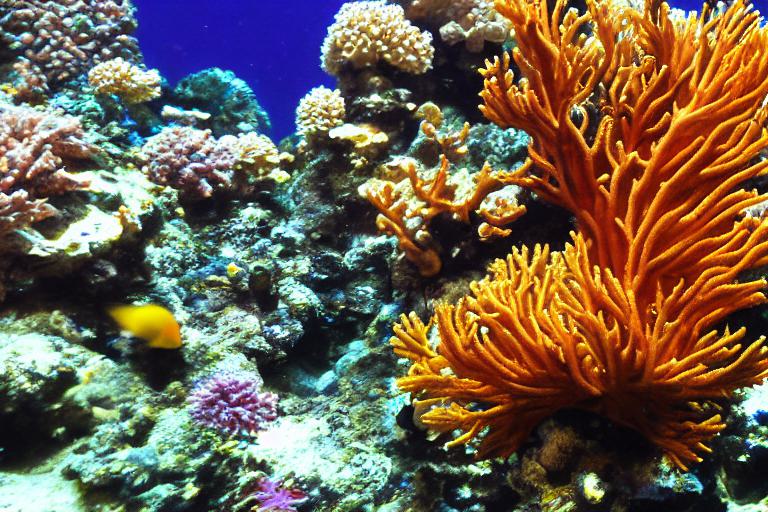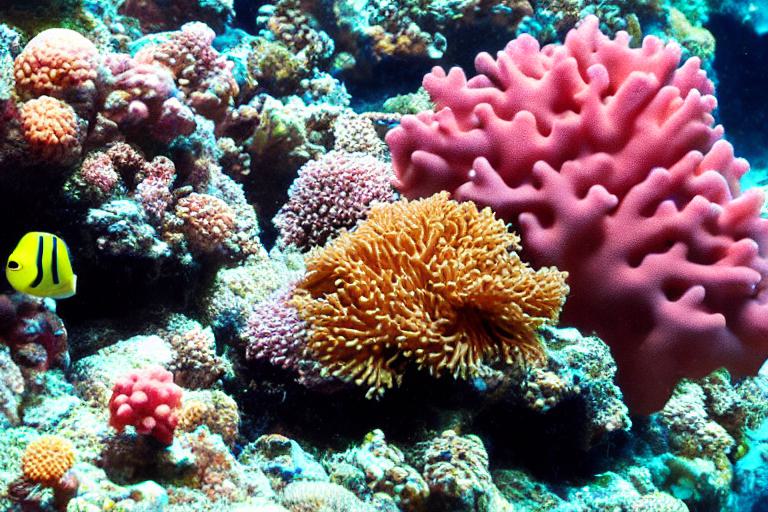In the animal kingdom, there are few creatures as unique as corals. Corals are marine invertebrates that live in colonies of many individuals. The colony is held together by a calcium carbonate exoskeleton. Each individual coral has a soft body with tentacles that it uses to capture prey. Corals are found in warm, shallow waters around the world.
Corals are fascinating creatures to observe. One of the most interesting things about corals is how long it takes for them to open up. When a coral is first born, it is in a larval stage. The larva floats in the water and eventually settles on the ocean floor. Once the larva settles, it undergoes a metamorphosis and becomes a polyp. The polyp is the stage of the coral’s life when it begins to grow its exoskeleton. It takes about two years for a coral to grow its exoskeleton and become an adult.

Factors That Affect Coral Opening Times
Coral reefs are also a major source of food and income for millions of people around the world. They are home to 25% of all marine life and provide a critical habitat for fish, invertebrates, and other marine life. Coral reefs are one of the most diverse ecosystems on Earth.
However, coral reefs are under threat from a number of factors, including climate change, pollution, and overfishing. These threats have led to a decline in the health of coral reefs around the world.
Bleaching is often caused by stress from environmental factors, such as warm water temperatures. One of the most visible signs of a decline in coral health is bleaching. This is when the coral loses its color and turns white.
When bleached, corals are more susceptible to disease and death. As a result, bleaching can have a major impact on the health of a coral reef.
This is a process known as coral opening and closing. In addition to bleaching, another factor that can affect the health of coral reefs is the opening and closing of their mouths.
When the coral is exposed to light, it opens its mouth to feed. Coral opening and closing is a natural process that occurs when the coral is exposed to light. When the coral is not exposed to light, it closes its mouth to conserve energy.
When the process is disrupted, it can lead to a decline in the health of the coral. However, this process can be disrupted by a number of factors, including pollution, sedimentation, and changes in water temperature.
Coral opening and closing is an important process for the health of coral reefs. When this process is disrupted, it can have a negative impact on the reef.
How Long Can a Coral Stay Closed?
When corals are stressed, they can expel the symbiotic algae living in their tissues, causing them to turn white. This process, called coral bleaching, is often fatal. But sometimes, corals can survive bleaching and eventually recover.
Some corals can survive for several months without their symbiotic algae, while others may only last a few weeks. It depends on the coral and the severity of the bleaching. So how long can a coral stay closed?
If the bleaching is not too severe and the coral is healthy, it may be able to recover within a few months. The coral will start to re-grow its symbiotic algae, and its color will slowly return.
However, if the bleaching is severe or the coral is already unhealthy, it may not be able to recover. In these cases, the coral will eventually die.
If the coral is healthy and the bleaching is not too severe, it may be able to recover within a few months. So, how long can a coral stay closed? However, if the bleaching is severe or the coral is already unhealthy, it may not be able to recover and will eventually die. It depends on the coral and the severity of the bleaching.

Why Aren’t My Corals Opening?
When corals are first placed in an aquarium, they often appear closed or retracted. It can take several days or even weeks for corals to fully open up. This is because they are adjusting to the new environment and acclimating to the lighting, water quality, and flow.
If the water quality is poor, corals will also close up to prevent themselves from taking in too much water and becoming overloaded with toxins. Lastly, if the water flow is too weak, corals will close up to prevent themselves from being swept away by the current. There are a few things that can cause corals to stay closed or only partially open. If the lighting is too intense, corals will close up to protect themselves from the intense light.
If everything looks good, give your corals some time to adjust and acclimate to their new home. Make sure the lighting is not too intense, the water quality is good, and the flow is not too weak. If your corals are not opening up, check the lighting, water quality, and flow in your aquarium.
How to Acclimate Corals to Your Tank
When you first add corals to your tank, they will often be closed up and not look very impressive. But don’t worry, with a little time and care, you can get them to open up and look beautiful! Here’s how:
First, make sure that the water in your tank is of good quality and the correct temperature. Corals are very sensitive to water conditions, so it’s important to get this right.
Next, slowly acclimate the corals to the light in your tank. If they are placed in too much light too quickly, they will bleached and die. So start with a low light level and gradually increase it over a period of days or weeks.
Finally, give the corals time to adjust to their new home. They may not open up right away, but if you provide the right conditions, they will eventually acclimate and start to look their best.
Sources
Each of these sources has its own set of variables that can affect the rate at which the coral opens up. Corals can come from a variety of sources, including the wild, captive-bred, or cultivated. In order to determine how long it takes for corals to open up, scientists first need to identify the source of the coral.
Captive-bred and cultivated corals, on the other hand, are typically not as stressed and can open up more quickly. This stress can cause the coral to close up and take longer to open up. For instance, wild-caught corals are typically under a lot of stress due to the change in environment.
The exact amount of time depends on the source of the coral and the individual coral itself. scientists have found that it can take anywhere from a few hours to a few days for corals to open up.
Frequently Asked Questions
1. How long does it take for corals to open up?
It can take corals anywhere from a few minutes to a few hours to open up. The time it takes depends on the type of coral and the water conditions.
2. What factors affect how long it takes for corals to open up?
The type of coral and the water conditions are the two main factors that affect how long it takes for corals to open up.
3. What is the shortest amount of time it can take for a coral to open up?
The shortest amount of time it can take for a coral to open up is a few minutes.
4. What is the longest amount of time it can take for a coral to open up?
The longest amount of time it can take for a coral to open up is a few hours.
5. Why do corals open up?
Corals open up to feed on plankton and other small organisms.
Final thoughts
Corals are a vital part of the marine ecosystem and play an important role in the health of the world’s oceans. It is estimated that corals cover less than one percent of the world’s ocean floor, yet they provide a home for 25 percent of all marine life. corals are very slow-growing animals, and it can take them many years to reach full size. The time it takes for corals to open up and begin to grow depends on a number of factors, including the type of coral, the water temperature, and the amount of light.
